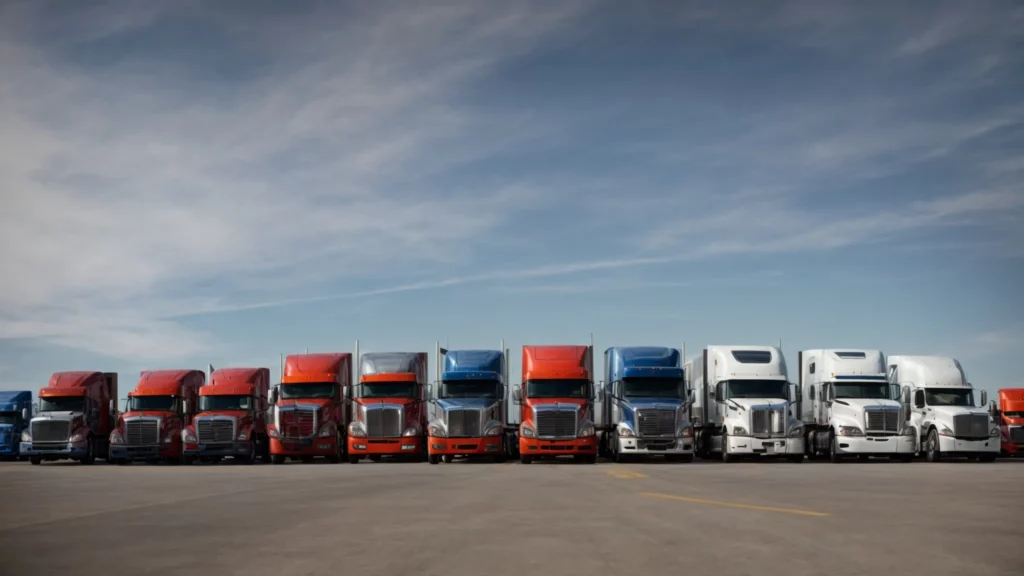Trucking Business 101: Tips and Tools for Successful Operations
Starting a trucking business can be a lucrative venture given the essential role trucking serves in the logistics and transportation of goods. As with any business, success in the trucking industry requires a clear understanding of the regulatory landscape, effective fleet management, and the savvy to leverage modern technology. Forging robust relationships with clients and building a strong brand is also crucial to the long-term success of your trucking enterprise. Below are key considerations and strategies for those looking to navigate the trucking business world effectively.
Navigating the Basics of Starting a Trucking Business

Starting a trucking business begins with a solid business plan that outlines goals, target markets, financing, and growth strategies. This roadmap is crucial for securing funding, whether through loans, investors, or personal savings. Since startup costs can be high, including trucks, insurance, and permits, having extra funds for unexpected expenses is wise.
Understanding the industry is key, from choosing a niche like refrigerated freight to deciding between buying or leasing trucks. A Truck Extended warranty can help protect against costly repairs, making it a smart investment for long-term success.
Leveraging Technology for Trucking Efficiency
Technology is transforming the trucking industry by improving efficiency and customer satisfaction. Telematics systems track real-time location, fuel use, and driver behavior, helping companies optimize operations. Electronic logging devices (ELDs) ensure compliance with HOS regulations while simplifying record-keeping. On the customer side, advanced tracking systems provide real-time delivery updates, boosting transparency and trust.
Understanding how VOIP works is also valuable for trucking communication, offering cost-effective and flexible connections between drivers and dispatchers. Load boards and freight-matching apps help companies find loads more efficiently, reducing empty miles and increasing profits.
Essential Compliance and Regulations for Truckers
The trucking industry requires strict adherence to federal and state regulations, including safety standards, Hours of Service rules, and environmental regulations. Staying updated with the Department of Transportation and the Federal Motor Carrier Safety Administration is crucial. Proper licensing, such as a commercial driver’s license and endorsements, is essential.
Obtaining an operating authority (MC number) and a USDOT number is also necessary for interstate commerce. Insurance, including liability and cargo insurance, is crucial to protect against risks associated with transporting goods. Regular audits and inspections are essential for ensuring compliance, including maintaining detailed records and preparing for potential audits.
Effective Fleet Management Strategies

Efficient fleet management is crucial for a successful trucking operation, involving vehicle maintenance, route planning, driver management, and fuel consumption optimization. A systematic approach reduces downtime and extends vehicle lifespan. Investing in a trained and reliable team of drivers is essential, requiring rigorous hiring practices, continuous training, and a supportive work environment.
Proper route planning is crucial for timely deliveries and fuel efficiency, and sophisticated software can help create efficient routes considering traffic patterns, driver hours, and delivery schedules. Fleet management software automates tasks like tracking maintenance and driver performance, ensuring compliance with HOS regulations and maintaining communication with drivers on the road.
Building a Strong Brand and Customer Relationships in Trucking
In the trucking industry, a strong brand identity is crucial for promoting dependability, professional service, and quality. This can be achieved through a professional logo, company colors, and consistent messaging. Building and nurturing customer relationships is also essential, as listening to clients’ needs, delivering on promises, and resolving issues promptly can set a company apart.
Social media and digital marketing can enhance brand visibility and engagement, creating opportunities for growth and customer referrals. Community involvement and networking, such as joining local business groups, attending industry events, and participating in trade shows, can also increase brand exposure and cultivate relationships.
Altogether, the path to prosperity in the trucking business is paved with a mix of strategic planning, compliance, technology adoption, and relationship-building. With these robust strategies and tools, trucking entrepreneurs can steer their business to success, ensuring a smooth journey through the complexities of the logistics sector.















